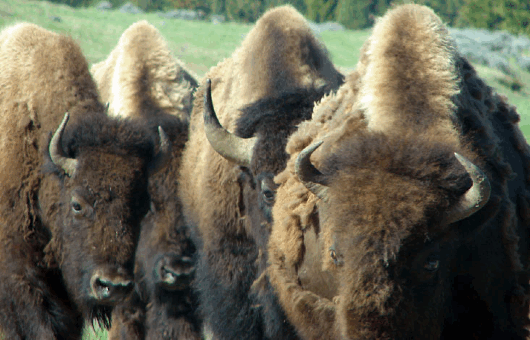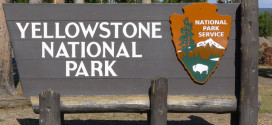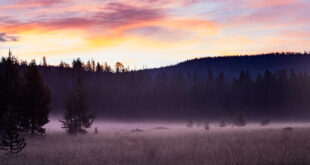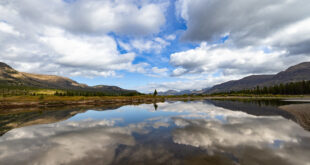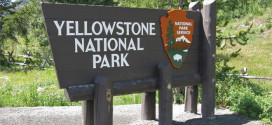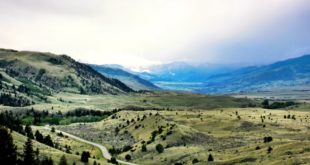It’s not a comfortable position for anyone involved, we’re guessing, but especially for the bison heading out of the Park and to the Hebgen Lake area. It’s a little late in the season for the bison to be out of the Park — usually hazing efforts are done by May 15 — but this has already been a most unusual year on the weather front, with a light snowpack most of the winter followed by lots of March and April snow and May and June rain. That’s caused rivers in the regions to overflow their banks — including the Madison River. It’s also caused a delay in the grassland growth the bison need the whole of the summer, directly impacting bison grazing areas. Hence the retreat to the northwest.
“I’ve never seen the Madison River so flooded. Basically, I don’t think they have anything to eat in there, and they’re turning around,” said Mike Mease of the Buffalo Field Campaign to the Bozeman Chronicle.
We’re not talking some serious hazing here: yesterday Montana officials hazed 40 back into Yellowstone National Park. But it’s enough to attract the attention of local cattlemen, set to open the grazing season next week.
RELATED STORIES: Stockgrowers Lawsuit to Restrict Bison Roaming Outside Yellowstone Dismissed
We’ve also set up a free Twitter account so you can receive updates on the device of your choice.
 Yellowstone Insider Your Complete Guide to America's First National Park
Yellowstone Insider Your Complete Guide to America's First National Park
